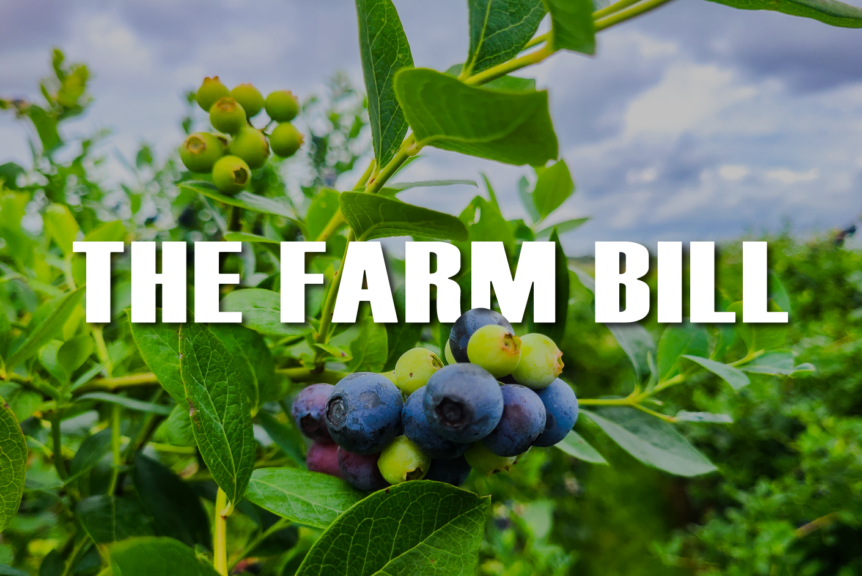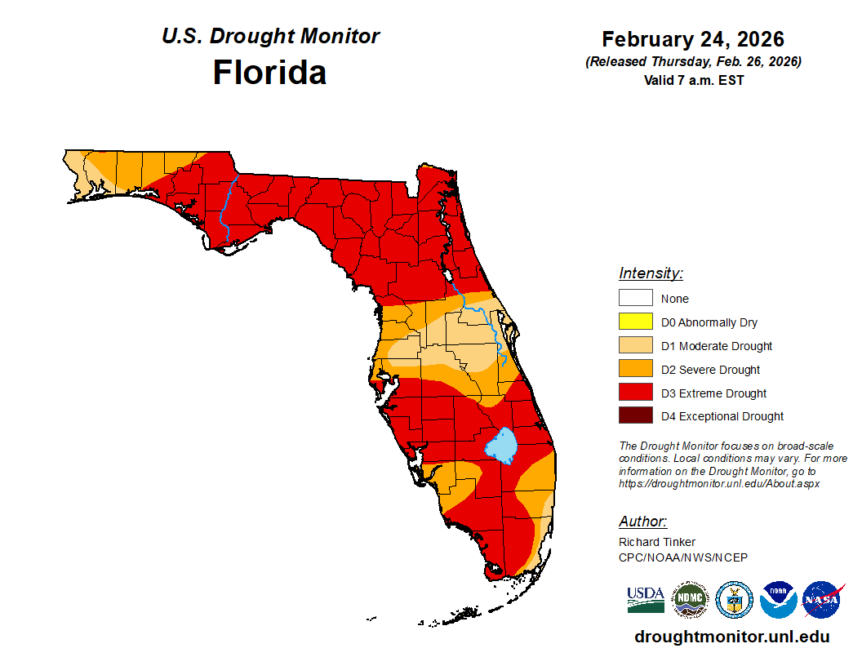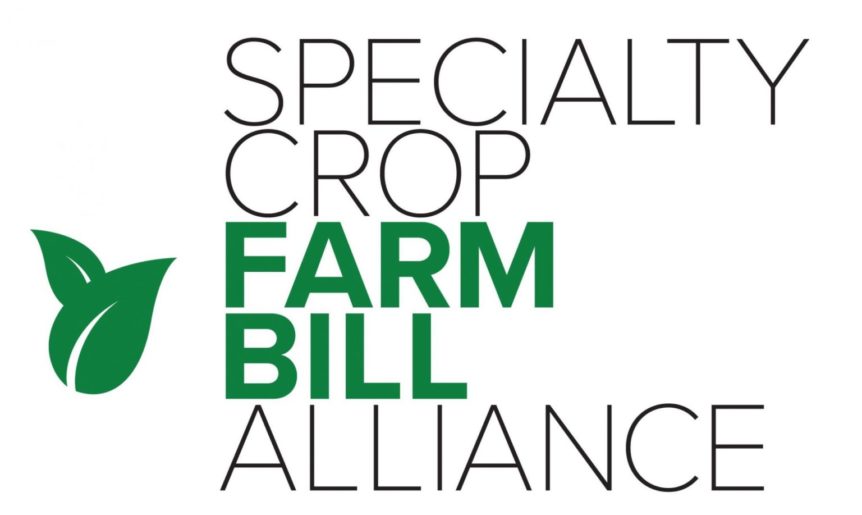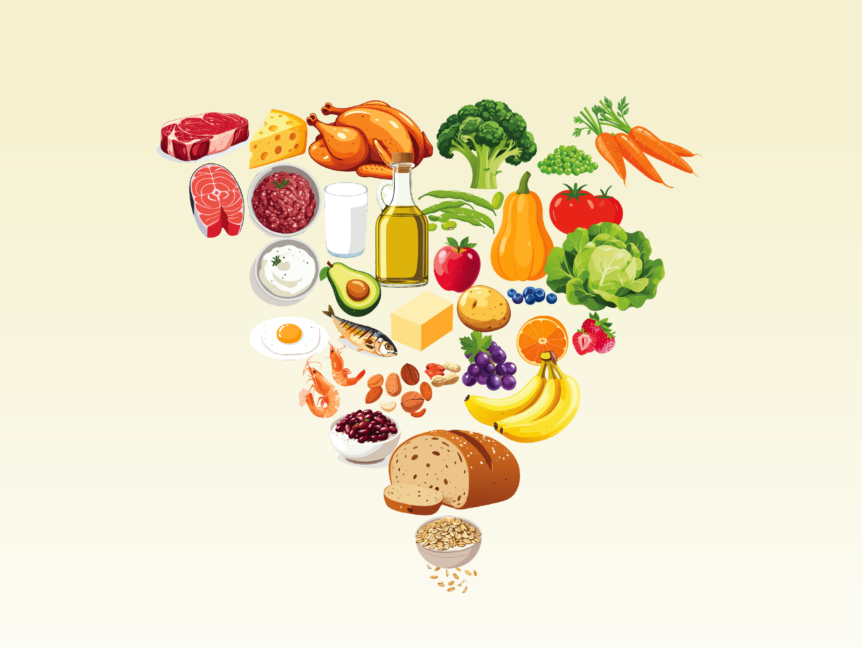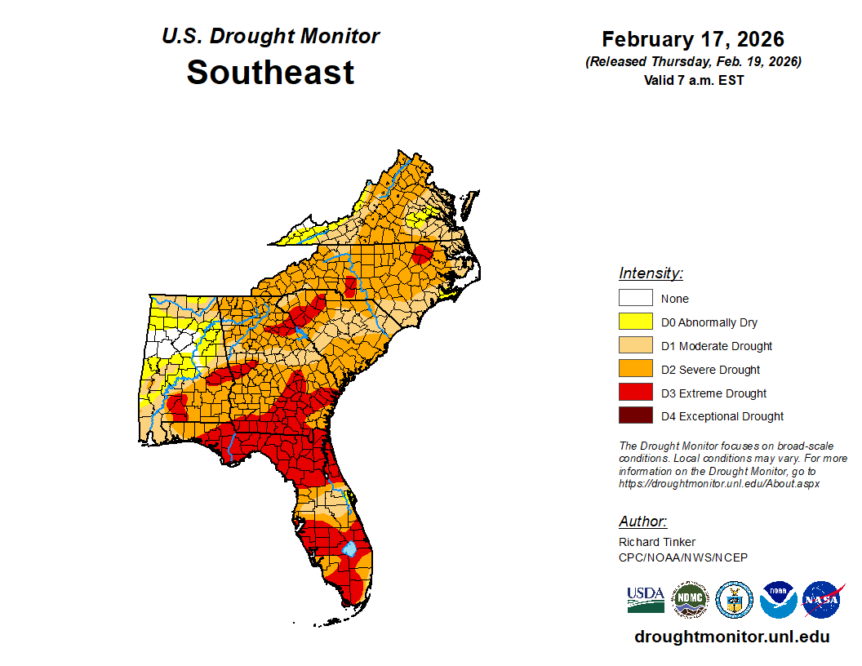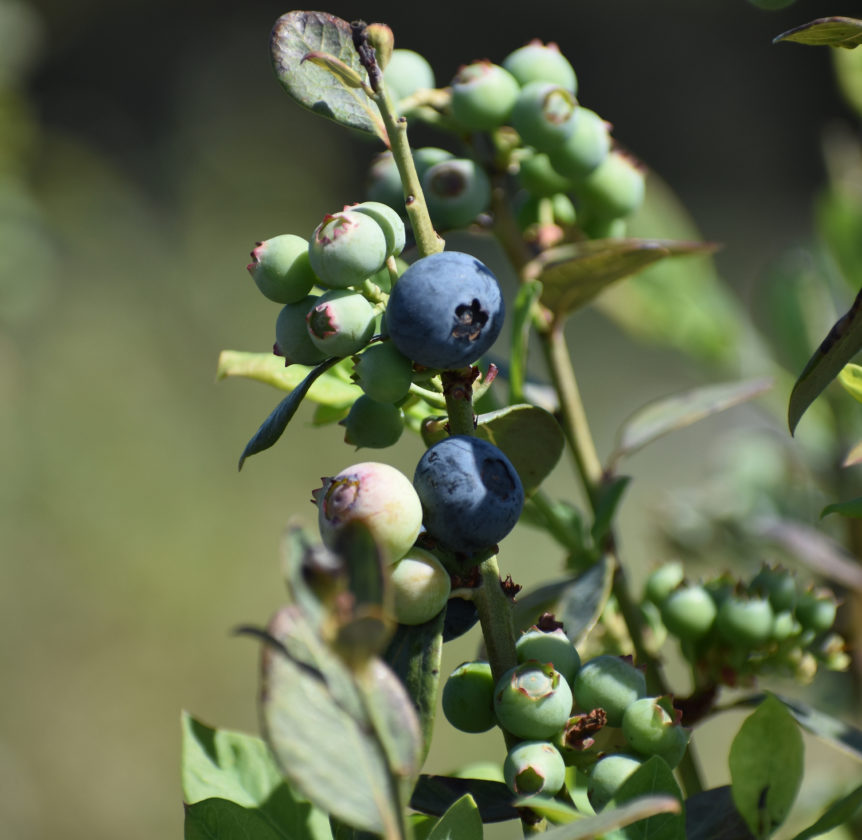By Clint Thompson The House Committee on Agriculture started the markup process for the Farm, Food and National Security Act of 2026 this week. House Committee on Agriculture Chairman Glenn Thompson (PA-15) addressed the bill’s importance in his opening statement. “The importance of what we are doing today as a committee cannot be overstated,” Thompson said. “It is clear that …
North Florida Drought’s Impact on Watermelon Plantings
By Clint Thompson Extreme drought conditions are still prevalent throughout North Florida, expanding from the Panhandle all the way as far south as Citrus and Sumter counties, according to the U.S. Drought Monitor. They are challenging conditions for the watermelon producers in the Suwanee Valley who are beginning to plant this year’s crop. Bob Hochmuth, University of Florida Institute of …
SCFBA Co-Chair Commends Farm, Food and National Security Act of 2026
By Clint Thompson The Farm, Food and National Security Act of 2026 is hopefully the first step in a new farm bill being in place for the country’s farmers sooner rather than later. The Specialty Crop Farm Bill Alliance (SCFBA) applauded its release and how it addresses multiple needs pertinent to the fruit and vegetable industries. Kam Quarles, CEO of …
Sneak Peek: March 2026 Specialty Crop Grower Magazine
In this month’s sneak peek, the March issue of Specialty Crop Grower Magazine highlights the recent deep freeze event in January and February that devastated various fruits and vegetables in Florida. Freezing temperatures caused significant damage to specialty crops across the state. Those crops included citrus, blueberries, strawberries, tomatoes, green beans and watermelons. Florida Ag Commissioner Wilton Simpson announced preliminary …
Specialty Crop Grower Magazine: Can MAHA Move the Needle on Sales?
By Frank Giles When President Trump appointed Robert Kennedy Jr. to lead the U.S. Department of Health and Human Services (HHS), it was a clear signal that it would not be business as usual at the agency charged with “improving the health, safety and well-being of America.” With a budget of about $2 trillion, HHS has significant sway in American …
Drought Monitor Update: Extreme Conditions Observed Throughout Southeast Region
By Clint Thompson The Southeast region continues to observe expansion of extreme drought throughout North Florida and South Florida, along with South Georgia. This is according to the Feb. 19 release of the U.S. Drought Monitor. Florida Extreme conditions in the Florida Panhandle start as far west in Walton and Holmes counties, stretching eastward to Nassau, Duval and Saint Johns …
Stem Blight a Lingering Concern for Blueberry Growers Following Freeze Event
By Clint Thompson Potential disease buildup in the short term and long term is a concern for Florida blueberry growers coping with the aftermath of the recent freeze event. Short-term concerns deal mostly with botrytis. Long-term impacts deal with stem blight, explained Phil Harmon, professor and Extension plant pathologist at the University of Florida Institute of Food and Agricultural Sciences, …
Estimate Puts Florida Freeze Damage at More Than $3 Billion
As growers surveyed fields and groves after the freeze in late January and early February, it was clear the damage had been catastrophic in many cases. That was confirmed by Florida Commissioner of Agriculture Wilton Simpson with the first estimate of damage released on Feb 20. Florida Department of Agriculture and Consumer Services’ (FDACS) preliminary estimates of losses to Florida …
Registration Open for 2026 Citrus & Specialty Crop Expo
Registration is now open for the 2026 Citrus & Specialty Crop Expo, set for Aug. 12–13 at the waterfront Caloosa Sound Convention Center in downtown Fort Myers. The Expo has earned a reputation as a top event for commercial producers. The event brings together citrus and specialty crop growers, allied industry companies, researchers and industry leaders for two days of …
Specialty Crop Alliance Applauds Release of Farm, Food and National Security Act of 2026
WASHINGTON — The Specialty Crop Farm Bill Alliance (SCFBA) issued the following statement regarding the Farm, Food, and National Security Act of 2026 released by House Committee on Agriculture Chairman Glenn “GT” Thompson. “The Specialty Crop Farm Bill Alliance commends Chairman Thompson and his staff for advancing the farm bill process and including key provisions that would enhance the competitiveness …










